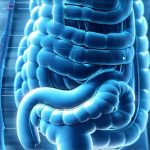Our modern world is characterized by convenience, often at the expense of physical activity. Many individuals now spend the majority of their waking hours sitting – working at desks, commuting, watching television, and engaging with digital devices. This dramatic shift towards a sedentary lifestyle isn’t merely about reduced calorie expenditure; it fundamentally alters the intricate relationship between our bodies and the vast ecosystem within us: the gut microbiome. Understanding how this impacts not only digestive speed but also the very diversity of microbial life residing in our intestines is crucial for appreciating the far-reaching consequences of prolonged sitting, and ultimately, for promoting overall health and wellbeing.
The human gut microbiome, composed of trillions of bacteria, fungi, viruses, and other microorganisms, plays a vital role in numerous physiological processes extending beyond digestion. It influences immune function, mental health, nutrient absorption, and even hormone regulation. This delicate ecosystem thrives on diversity – a wide range of microbial species is generally associated with better health outcomes. A sedentary lifestyle disrupts this balance, creating an environment that favors certain microbial populations over others, ultimately diminishing overall diversity and potentially leading to impaired digestive function and increased susceptibility to disease. It’s not simply that we sit more; it’s how inactivity impacts the complex interplay between our bodies and these crucial microorganisms. Understanding hormonal changes can also play a part in digestive health.
The Interplay Between Sedentary Behavior & Microbiome Diversity
A primary way sedentary behavior affects microbiome diversity is through its impact on gut motility – the movement of food through the digestive tract. When we are physically active, this natural peristaltic motion is stimulated, helping to move waste products and prevent stagnation. Prolonged sitting slows down these contractions, creating an environment where certain bacteria can overgrow while others struggle to thrive. This imbalance can lead to dysbiosis – a disruption in the normal microbial composition of the gut. – Reduced diversity makes the microbiome less resilient to external stressors such as antibiotics or dietary changes. – It also limits the range of functions the microbiome can perform, potentially impacting nutrient absorption and immune regulation. As we digestion slows with age, it is important to stay active.
Furthermore, sedentary lifestyles are often linked with dietary habits that exacerbate these issues. Individuals who sit for long periods may be more likely to consume processed foods, sugary drinks, and a diet low in fiber – all factors that negatively influence microbiome diversity. Fiber serves as the primary food source for beneficial gut bacteria; without adequate fiber intake, these bacteria struggle to survive, further contributing to dysbiosis. The combination of reduced physical activity and poor dietary choices creates a vicious cycle where microbial imbalances worsen over time. Essentially, inactivity creates an environment where the “good” bacteria are starved while the less desirable ones flourish. It’s important to consider how fast you eat as well, as this can also impact digestion.
The connection isn’t merely correlational; research increasingly points towards causal links. Studies have demonstrated that introducing exercise into sedentary individuals can positively impact microbiome diversity. Conversely, controlled experiments involving induced immobility show a rapid decline in microbial richness and even changes in metabolic function within the gut. This suggests that physical activity is not just associated with a healthier microbiome, it’s actively required to maintain one. It’s important to remember that this isn’t about needing intense workouts; even moderate levels of physical activity – walking, taking the stairs, or incorporating short movement breaks throughout the day – can make a significant difference. An introvert lifestyle may also impact digestion due to stress and habits.
How Digestion Speed Is Affected By Inactivity
Digestion is a complex process involving mechanical breakdown, chemical digestion, and absorption of nutrients. A healthy digestive system relies on coordinated muscle contractions to move food along the gastrointestinal tract at an appropriate speed. Sedentary behavior directly interferes with this process. When we are inactive, the muscles in our gut become sluggish, leading to slower transit time – the amount of time it takes for food to pass through the digestive system. – Slower transit time can result in constipation and bloating, as waste products remain in the colon for longer periods. – It also provides more opportunity for harmful bacteria to proliferate, contributing to dysbiosis and potentially increasing the risk of inflammatory bowel diseases.
The speed of digestion is intrinsically linked to microbiome activity. Different microbial species have varying metabolic rates and influence how quickly food is broken down. A diverse microbiome can efficiently process a wide range of nutrients, while a less diverse microbiome may struggle with certain types of foods, leading to undigested food fermenting in the colon and producing gas or other uncomfortable symptoms. The slower digestive speed associated with inactivity exacerbates this issue by providing more time for fermentation to occur. A healthy gut is not just about what bacteria are present but also how quickly they can process food. If you have undergone gallbladder removal, digestion may be impacted as well.
Addressing slow digestion requires a multi-faceted approach. Increasing physical activity levels helps stimulate gut motility, while incorporating fiber-rich foods provides fuel for beneficial bacteria and promotes regular bowel movements. Staying adequately hydrated is also crucial, as water helps soften stool and facilitates its passage through the digestive tract. It’s worth noting that chronic constipation can further disrupt microbiome diversity, creating a self-perpetuating cycle – highlighting the importance of early intervention and preventative measures.
The Role of Inflammation & Gut Permeability
Chronic inflammation is a hallmark of many modern diseases and has been strongly linked to sedentary lifestyles. Prolonged sitting triggers low-grade systemic inflammation throughout the body, including in the gut. This inflammation disrupts the delicate balance of the microbiome, favoring inflammatory bacterial species and further reducing diversity. Inflammatory molecules can also damage the intestinal barrier – the protective lining that separates the gut from the rest of the body.
A compromised intestinal barrier leads to increased intestinal permeability, often referred to as “leaky gut.” This allows undigested food particles, toxins, and bacteria to leak into the bloodstream, triggering an immune response and exacerbating inflammation. The cycle continues – increased inflammation further damages the intestinal barrier, leading to more leakage and a worsening of dysbiosis. – Leaky gut has been implicated in numerous health conditions, including autoimmune diseases, allergies, and mental health disorders.
The microbiome plays a critical role in maintaining the integrity of the intestinal barrier. Beneficial bacteria produce short-chain fatty acids (SCFAs) – compounds that nourish the cells lining the colon and strengthen the intestinal barrier. However, sedentary behavior reduces the production of SCFAs due to decreased microbial diversity and altered metabolic activity. Restoring gut health requires addressing both inflammation and permeability. This can be achieved through a combination of strategies: increasing physical activity, adopting an anti-inflammatory diet rich in fruits, vegetables, and omega-3 fatty acids, and potentially incorporating probiotic supplements (under the guidance of a healthcare professional) to help restore microbial balance. Combating the inflammatory consequences of inactivity is essential for protecting gut health. Hormonal birth control can also cause inflammation and impact digestion.
Simple Strategies To Counteract Sedentary Effects
While completely eliminating sedentary behavior may not always be possible, there are numerous strategies individuals can implement to mitigate its negative effects on microbiome diversity and digestion speed. One effective approach is to incorporate regular movement breaks throughout the day. Setting a timer to remind you to stand up and move around every 30-60 minutes can significantly increase your overall activity level. – These breaks don’t need to be strenuous; simply walking around, stretching, or doing a few simple exercises can make a difference.
Another key strategy is to prioritize fiber intake. Aim for at least 25-30 grams of fiber per day from sources such as fruits, vegetables, whole grains, and legumes. Fiber not only feeds beneficial gut bacteria but also promotes healthy bowel movements and prevents constipation. Consider gradually increasing your fiber intake to avoid digestive discomfort. Finally, mindful eating practices can also play a role. Taking the time to chew your food thoroughly and eat slowly allows for better digestion and reduces the burden on your digestive system. Small changes in lifestyle habits can have a profound impact on gut health.
It’s important to remember that maintaining a healthy microbiome and optimal digestive function is an ongoing process, not a one-time fix. By incorporating these strategies into your daily routine, you can proactively counteract the negative effects of sedentary behavior and promote overall wellbeing.


















